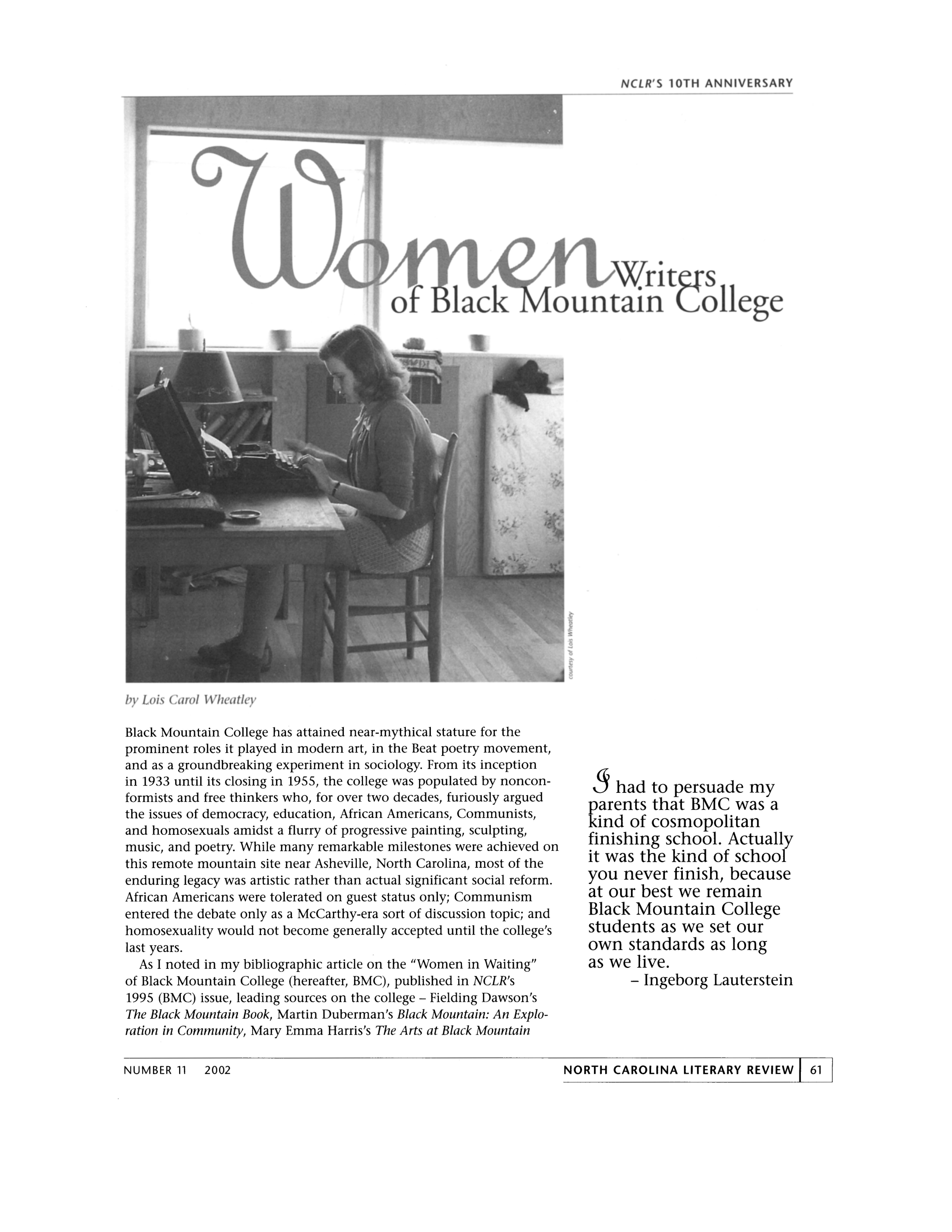Friday from the Archives: “Women Writers of Black Mountain College” by Lois Carol Wheatley from NCLR 11 (2002).
“Black Mountain College has attained near-mythical stature for the prominent roles it played in modern art, in the Beat poetry movement, and as a groundbreaking experiment in sociology,” Wheatley starts her second piece about the history of Black Mountain College (her first, appropriately, was in the ’95 issue featuring BMC). But as her work shows, “In retrospect, the BMC women who ultimately emerged as writers
did so at some point (in most cases, a decade or two) after leaving the college, and did so on their own, not as part of a larger movement.”
The writers she corresponds with (or attempts to) for the piece include (in order from the essay): Peggy Bennett, Elaine Gottlieb, Hannelore Hahn, Ruth Herschberger, Jane Mayhall, Margaret Williamson, Elizabeth Pollet, Sue Spayth (Riley), Vera B. Williams, M. C. Richards, Francine du Plessix Gray, Martha King, Ingeborg Lauterstein, and Hilda Morley.
While the 1930s through the 1950s certainly saw a large change in opportunities available to women, Black Mountain College was at the bleeding edge of that culture shift. Wheatley shared that “Riley even remarked specifically on being a female student at a time when women’s options were still largely limited by social expectations: “I was very much encouraged as a person at Black Mountain, which was quite a difference in that day and age, coming from a high school where they told me my choices were I could be a teacher, I could be a nurse, and some few people went into journalism. Now everything is open to us – almost everything. But I didn’t feel stifled at Black Mountain at all; I felt very much encouraged.””
Wheatley calls attention to the fact that the male teachers of BMC had varying influence, not only on students but also other teachers and the general public, but in the end, that may not completely account for the lack of early published writing from these women. She posits, “a passage from Lovers and Tyrants, an early novel in the long career of Francine du Plessix Gray, suggests the multiple sources that most likely gave rise to the ambivalences, the procrastinations, the interferences, and the apparent paradoxes that seemed to plague the women writers who attended Black Mountain College (and perhaps women writers in general): “[E]very woman’s life is a series of exorcisms from the spells of different oppressors; nurses, lovers, husbands, gurus, parents, children, myths of the good life, the most tyrannical despots can be the ones who love us the most” (264-65).” File under: same as it ever was.
Read the article by ordering the 2002 10th Anniversary issue for your collection.
